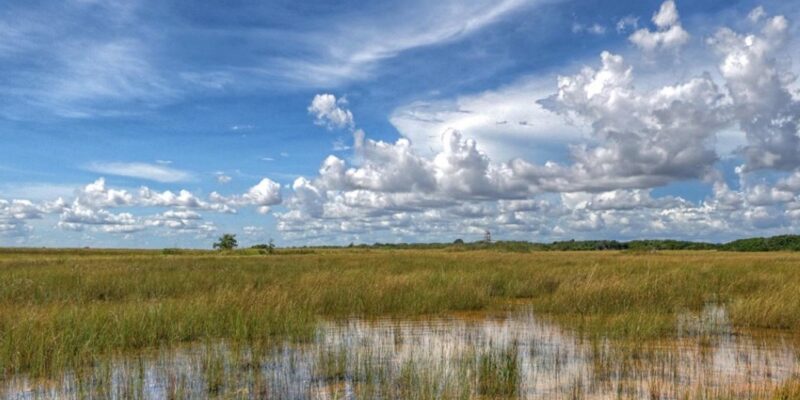Florida leaders have been struggling to keep toxic algae out of the freshwater rivers and estuaries that originates from nutrient-filled water settling in Lake Okeechobee.
Central Florida rainfall washes over roads, lawns, golf courses and pastures collecting fertilizers, sediment, oil and other contaminants as it makes its way south through canals, rivers and waterways before reaching estuaries and Lake Okeechobee. When too much ‘dirty’ water fills Lake O, it must be released to protect communities around the lake from flooding.
Both the state and federal government, along with the agriculture industry, have come together to help clean up these water ways as part of a decades-long effort to restore the Everglades.
Back in 2000, state and federal agencies launched the Comprehensive Everglades Restoration Plan (CERP) to help restore much of the natural flow of freshwater that drains down through the Everglades.
This multi-billion-dollar clean-up effort recently received another cash boost from both the DeSantis and Trump administrations, to help expedite the process.
Since the Florida’s water problems have become political in nature, local elected officials routinely point the finger of blame at business interests, specifically the agriculture industry, to score political points with voters who tend to sympathize with the environment more than others.
But while these regional elected officials clamor to get the blessing of environmental groups that point to the water problem in Florida, as well as demonize the state’s agriculture industry, a bigger threat to the Everglades clean-up effort is on the “rise.”
Because of Climate Change, sea levels are rising, and because of the water level rising, the Everglades’ delicate ecosystem is being threatened and damaged.
The Everglades have been around for thousands of years, so it does have a natural defensive measure already in place.
According to The Conversation news website, the “dense mangrove forests along Florida’s southwest coast absorbs storm surge, and “filter out and consolidate mud and sand” that has been disturbed by passing storms.
In addition, freshwater draining from as far north as Orlando, piles up behind the mangroves, “creating a hydraulic barrier that prevents seawater from infiltrating inland. “
The Everglades and the clean-up effort are safe, right?
No so fast.
“Geological records show that there are limits to how much sea level rise the Everglades can accommodate, states the Conversation story “The Everglades have existed only for about the last 4,000 years. Over this time seas were near their present level and rising at a relatively leisurely pace of 0.04 inches (1 millimeter) per year or less.”
Remember, the natural flow of water passes through vast fields of Sawgrass fields that grow on top of peat. This sawgrass is vitally important in the natural water filtration process.
Too much saltwater will kill the sawgrass and other plants and eat way at that dense peat, which will then cause the “soil surface to collapse.”
Scientists say the effects of Climate Change could threaten the current Everglades restoration plan which begs the question: “Why are we spending so much money South of the Lake?”
Saving Lake Okeechobee by cleaning water before it gets to the lake seems to be the more logical path.





